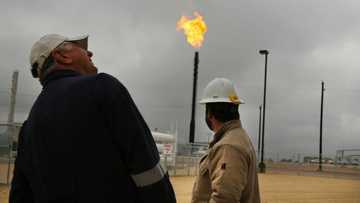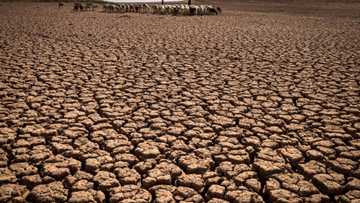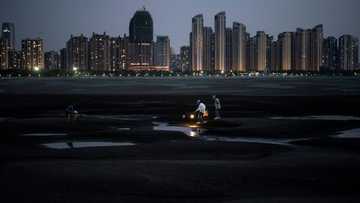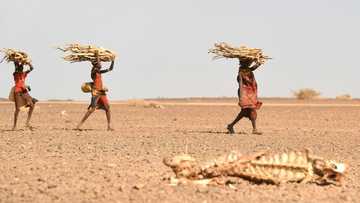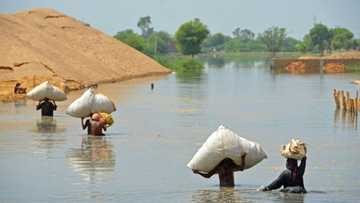COP27 Unpacked: What Exactly Is It and Why Should South Africans Care About it?
The phrase "COP27 negotiations" has polluted news feeds over the last few days, with little explanation of what is happening behind closed doors. The name makes it sound like leaders are stuck in long uninteresting debates in closed-off boardrooms, but there is more to COP27.
PAY ATTENTION: Click “See First” under the “Following” tab to see Briefly News on your News Feed!
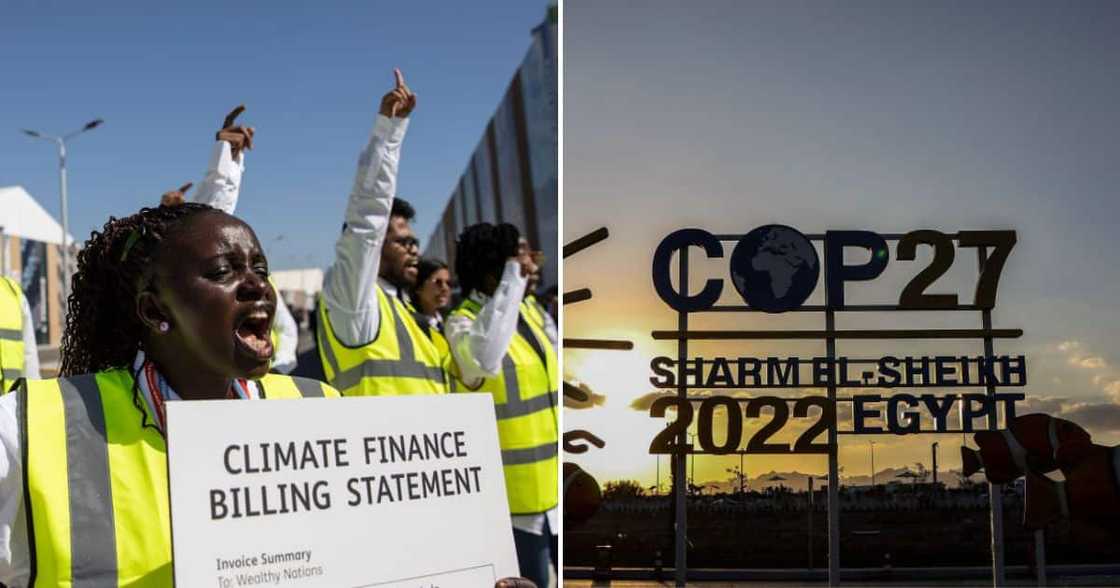
Source: Getty Images
Over the last few days, the news has been abuzz about the COP27 negotiations currently underway in the Egyptian coastal city of Sharm el-Sheikh. The question on many South African minds is, what exactly is COP27, and why should we care?
Briefly News unpacks the climate negotiations and why South Africans should give a hoot.
What is COP27?
COP, also known as the Congress of the Parties, is an annual convention where world leaders and delegates gather to discuss global warming, carbon emissions, and what measures can be implemented to tackle climate change.
PAY ATTENTION: Follow us on Instagram - get the most important news directly in your favourite app!
The convention was established at the Rio Earth Summit in 1992. Since then, leaders from the 198 countries that joined the United Nations Framework Convention on Climate Change meet every in a different country to take stock of how the fight against climate change is going. This year, 2022, marks the 27th meeting.
Why is COP important?
Climate change is not a new phenomenon. It is essentially the long-term shift in global temperatures and weather patterns. People who say climate change does not exist will argue that the changes are natural.
But since the 1800s, when the industrial revolution started, human activities have driven these changes through burning fossil fuels like coal, oil, and gas.
According to the United Nations, the continued burning of fossil fuels means that emissions are rising, which is, in turn, causing a rise in global temperatures. The world is now 1.1°C warmer than it was in the late 1800s.
The UN's Intergovernmental Panel on Climate Change (IPCC) states that global emissions must be halved by 2030 to keep global temperatures below 1.5°C. During COP21, nations signed a legally binding treaty on climate change, The Paris Agreement, which required countries to set goals and take action to reduce their emissions and limit warming temperatures to 1.5°C.
However, the latest report from the IPCC shows that with the current goals set in place, the world is currently barreling towards exceeding 3°C of global warming by 2030.
Imraan Valodia, the Pro Vice-Chancellor of Climate, Sustainability and Inequality and Director of Southern Centre for Inequality Studies at Wits University, wrote, in an article for The Conversation, that urgent action is needed to limit warming temperatures. If not, the world will see irreversible climate impacts such as sea level rise, reduced food production, and increased water scarcity.
We already see the effects. The Washington Post reported that extreme weather events like floods, drought, and wildfires are increasing in intensity and frequency worldwide, affecting millions of people and global economies.
This is why COP27, in particular, is so important; leaders need to go back to the drawing and review the commitment made so that warming can be limited to 1.5°C.
Why Should South Africans care?
We have already unpacked how the whole world is affected by rising temperatures, but some regions are more affected than others. It may be a surprise, but South Africa is one of the most vulnerable regions in the world because of the nation's geographic location.
South Africa can be regarded as a climate "hot spot". The country has warmed twice the global average in a world that is 1.1°C warmer. When the rest of the world reaches the catastrophic 1.5°C, South African temperatures will be at 3°C, explains Professor Francois Engelbrecht, one of the key contributors to the IPCC report, told Daily Maverick.
If this level of warming is reached, it will have untold consequences for South African citizens. Mail and Guardian reported that at 3°C, maize crops, SA's food staple, would likely collapse because of high temperatures and drought combined. The livestock industry will also become unviable.
The publication added that the availability of freshwater would also decrease. South Africa is already a water-scarce country, but at 3°C warming, the nation will become even drier with reduced rainfall and increased evaporation.
In light of this SA, citizens need the government to participate actively in COP negotiations to secure climate financing and implement measures to ensure the nation reduces its carbon emission.
What is the South African government doing to stop this from happening?
President Cyril Ramaphosa is currently at the climate talks, where he has secured an endorsement of South Africa's R1.5 trillion just energy transition investment plan, which will be geared towards transitioning away from coal and reducing the nation's carbon emissions in line with the Paris Agreement, News24 reported.
World Bank boss greenlights SA's energy plan after successful meeting with ministers Godongwana and Gordhan
In a related story, Briefly News reported that Finance Minister Enoch Godongwana and Public Enterprises Minister Pravin Gordhan showed the president of the World Bank, David Malpass, around the recently decommissioned Komati power station on Saturday, 5 November.
The purpose of the meeting was to seal the deal on the 9 billion funding for the conversion of Komati into a renewable energy station as part of the national energy transition.
Malpass expressed his confidence in SA's ability to meet its just energy transition targets in light of the global community's difficulty in reducing greenhouse gas emissions.
PAY ATTENTION: Сheck out news that is picked exactly for YOU ➡️ find the “Recommended for you” block on the home page and enjoy!
Source: Briefly News

